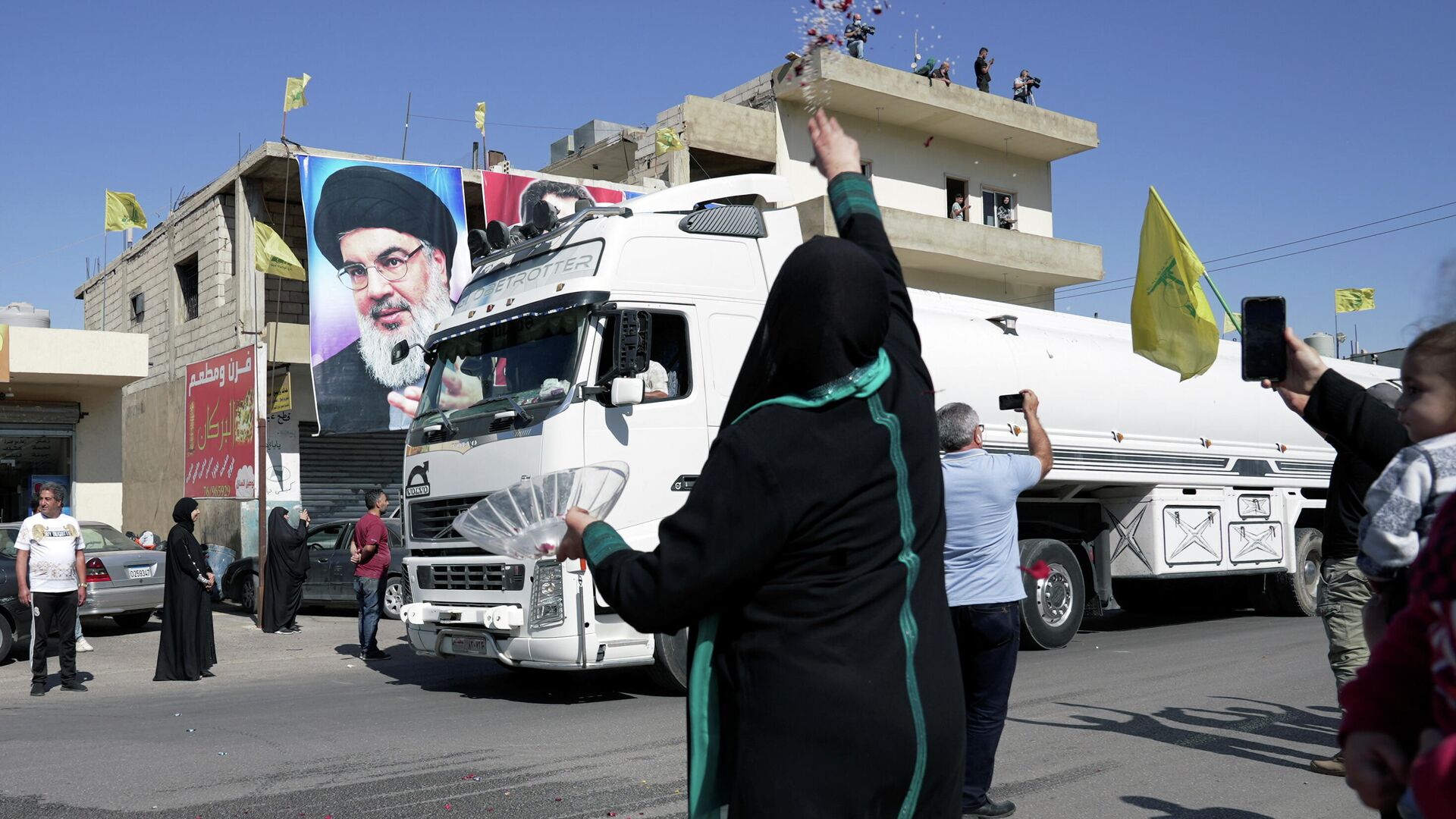Iran Says Ready to Sell Fuel to Lebanese Gov't After Hezbollah Secured Emergency Supplies - Report
00:45 GMT 20.09.2021 (Updated: 00:46 GMT 20.09.2021)

© REUTERS / ISSAM ABDALLAH
Subscribe
Lebanon defaulted on its debt last year and is unable to import essential supplies, including gasoline for automobiles and diesel to power generators, all while power outages persist. Hezbollah vowed last month that it would bring fuel from Iran, and last week the first tankers arrived in the country.
After Hezbollah brokered the first delivery of Iranian fuel to Lebanon in late August, Tehran has now indicated that it is willing to sell fuel to the Lebanese government to assist in the alleviation of shortages, AFP reported on Sunday, citing Iran's foreign ministry.
"If the Lebanese government wants to buy fuel from us to resolve the problems faced by its population, we will supply it," foreign ministry spokesman Saeed Khatibzadeh said, according to the report.
He reportedly added that the Islamic republic had already sold fuel to a "Lebanese businessman," but did not mention Hezbollah.
This comes as independent oil tracking service TankerTrackers.com said it had identified a third tanker carrying Iranian oil to Lebanon.
The third tanker carrying Iranian fuel earmarked for Hezb’Allah’s distribution within Lebanon, is laden and underway. Full details with our clients.
— TankerTrackers.com, Inc. (@TankerTrackers) September 19, 2021
Hassan Nasrallah, the leader of the Hezbollah militant group, had previously vowed to arrange transportation of oil from Iran to alleviate rationing that has caused mayhem across the country.
The leader of the militant group accused the United States of causing the current economic crisis in Lebanon, and promised that fuel will be first provided to essential services, including hospitals, for free.
"We don't want to get into a challenge with anyone, we don't want to get into a problem with anyone. We want to help our people," Nasrallah said as translated by Al-Masdar News.
In an interview with CNN, Najib Mikati, Lebanon's new prime minister, said that the shipment "was not approved by the Lebanese government." He added that he was "saddened" because of "the violation of Lebanon’s sovereignty," but noted that he was not afraid of possible sanctions due to the shipment. The US has threatened to sanction any country that buys Iranian oil.
"Lebanon has not abandoned its Arab brothers and is calling on them not to abandon it. I pledge that Lebanon has not and will not be an arena for abuse," he stressed, according to a statement shared by his office.
According to the World Bank, the Middle-eastern country is undergoing its worst-ever financial crisis.
The economic situation in Lebanon deteriorated further with the outbreak of the COVID-19 pandemic and a horrific explosion in Beirut's port, one of the country's few remaining functional economic centers, last year.
According to the monitoring website Lira Rate, as of Sunday, the Lebanese pound has marginally risen in value on the black market, from about 18,000 to 14,000, against the dollar, since a new government was announced on Friday, although it remains considerably below its previous official rate of 1,500.
In Lebanon, utility power is only available a few hours a day, and citizens have difficulty finding gasoline, bread, and medicines.
Earlier, energy ministers from Egypt, Jordan, Syria, and Lebanon agreed to a proposal to deliver Egyptian gas and Jordanian electricity to Lebanon via Syria as part of a separate move to supply power to the country, Reuters reported.
